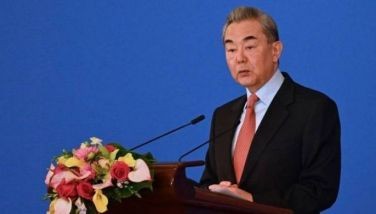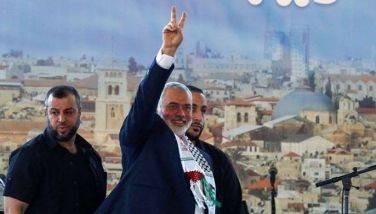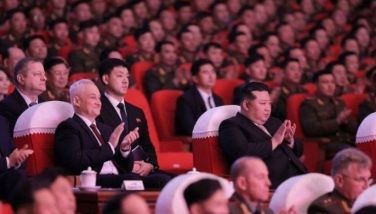UN chief urges hope in world seeming to fall apart
UNITED NATIONS — The United Nations chief called for world leaders Wednesday to join an international campaign to ease the plight of nearly unprecedented numbers of refugees, the displaced and victims of violence in a world wracked by wars and the swift-spreading and deadly Ebola epidemic.
Secretary-General Ban Ki-moon said leaders must find and nurture "seeds of hope" in the turmoil and despair of a world that may seem like it's falling apart with people crying out for protection from greed and inequality.
"Not since the end of the Second World War have there been so many refugees, displace people and asylum seekers. Never before has the United Nations been asked to reach so many people with emergency food assistance and other life-saving supplies," Ban said in his state of the world address at the opening of the U.N. General Assembly's annual ministerial meeting.
Several leaders including Jordan's King Abdullah and Turkey's President Recep Tayyip Erdogan addressed the challenges — financial and social — of hosting hundreds of thousands of refugees from Syria.
Abdullah, whose country is sheltering nearly 1.4 million Syrians, said the refugee crisis "demands a global solution."
"To date, the response has not kept pace with the real needs," he said.
The global spotlight at the assembly is focused on the rise of radical Islamic extremists, who chose Wednesday to behead a French hiker in Algeria. French President Francois Hollande denounced the militants linked to the Islamic State group who assassinated Herve Gourdel and warned that they pose a global threat that must be stopped.
U.S. President Barack Obama urged world leaders to join a global coalition to destroy the Islamic State terrorist group which "has terrorized all who they come across in Iraq and Syria." He also urged the leaders to address the failure to confront forcefully enough "the intolerance, sectarianism, and hopelessness that feeds violent extremism in too many parts of the globe."
And Ban decried the "new depths of barbarity" and called for decisive action to stop "atrocity crimes." But he also said "we must not let the smoke from today's fires blind us to longer-term challenges and opportunities" and address "the danger posed by religiously motivated fanatics."
Speaker after speaker addressed a host of other issues from illegal immigration to promoting equality for women and reforming the powerful U.N. Security Council to reflect the 21st century, not the post-World War II world.
On a positive note, Mauritania's President Mohamed Ould Abdel Aziz, who currently heads the 54-nation African Union, touted the continent's economic growth, now close to 6 percent on average, and its promotion of agriculture, which now employs close to 60 percent of the work force and represents one-third of the continent's GDP.
"Africa is working relentlessly to change from a consumption space to a production zone in order to guarantee employment opportunities for millions of its people," he said.
Abdel Aziz called for "strong action to find efficient and rapid solutions" to the phenomenon of illegal immigration and address the unemployment that leads African youth to seek opportunities elsewhere.
"We cannot just count the bodies washed up onto the beaches or undertake rescue operations at sea for thousands of migrants crammed in unsafe boats," he said.
- Latest
- Trending
































